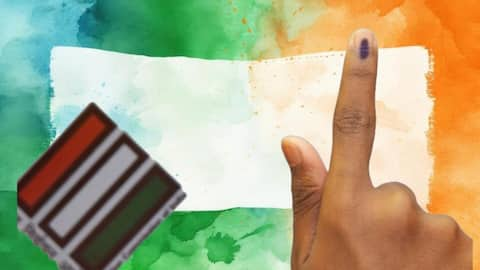Why it's crucial to ensure equal voting access for all
What's the story
In a democracy, voting is not just a right but a fundamental duty, serving as the cornerstone of a nation's governance. However, for this cornerstone to be truly representative, it must be accessible to all citizens, regardless of their physical abilities. Despite efforts to ensure equal access to voting for all, marginalized sections are sometimes missed out due to various reasons.
Community
Marginalized communities that face various voting challenges
Marginalized communities such as dalits, adivasis, and religious minorities often face challenges in exercising their right to vote in India. Historically marginalized and economically disadvantaged, these communities may encounter obstacles such as voter intimidation, coercion, or discrimination based on caste, religion, or ethnicity. Additionally, limited access to education and information may hinder their understanding of the electoral process, leading to disenfranchisement.
Obstacles
Challenges faced by Persons with Disabilities (PWDs) in voting
Persons with Disabilities (PWDs) often encounter numerous obstacles when it comes to exercising their right to vote. These obstacles range from physical barriers at polling stations to a lack of accessible transportation to reach the voting booths. Moreover, the complexity of the voting process itself, such as understanding ballot papers or operating electronic voting machines (EVMs), can pose significant challenges for PWDs.
Importance
Why does equal access to voting matter?
Equal voting access strengthens the legitimacy of the democratic system by ensuring that election outcomes truly reflect the will of the people. When all citizens have an equal opportunity to vote, it fosters confidence and fairness in the electoral process, reinforcing the belief that the government is accountable to all its citizens, regardless of their background or circumstances.
Inequality
What happens when voting access is unequal?
Equal voting access is foundational to the principles of democracy, ensuring that every individual has the right to participate in shaping their government and society. When voting access is unequal, certain marginalized communities are disproportionately affected, leading to underrepresentation in political decision-making processes. By removing barriers to voting, we promote inclusivity and ensure that diverse voices are heard and considered in the democratic process.
Legal
Legal framework and initiatives
Recognizing the importance of inclusive elections, India has enacted several legal provisions like the Rights of Persons with Disabilities Act, 2016, ensuring accessible infrastructure and services, including in the electoral process. Additionally, the Election Commission of India (ECI) has introduced measures like accessible polling stations, Braille-enabled EVMs, and sign language interpreters to facilitate voting for PWDs.
Multifaceted approach
Steps taken by the government
To ensure equal access to the electoral process for marginalized communities, the government has implemented a multifaceted approach. This includes conducting targeted outreach programs to educate them about voting rights and the electoral process, addressing barriers such as intimidation and discrimination. Moreover, empowering community leaders to advocate for their rights and enforcing legal protections are essential steps undertaken.
Individual
What can you do to help marginalized sections to vote?
Speak to the local authorities and arrange for onsite facilities to help disabled folks or those belonging to the marginalized sections cast their vote. This could include basic conveyance and organizing designated polling booths so that they don't have to wait in long queues. Assist your domestic help/workers register themselves and their families in the voting process. Educate them about their voting rights.
